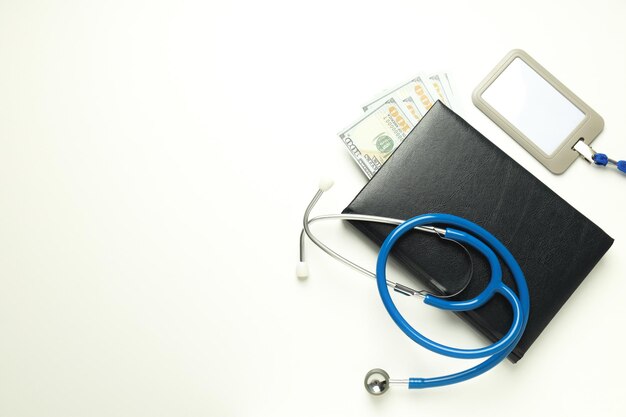Can Medical Debt Impact Your Credit Score? Everything You Need to Know
Navigating the complex world of healthcare can be daunting, especially when medical bills start piling up. The question that often arises is: Can medical debt go on your credit report? The short answer is yes, but understanding the nuances of how medical debt affects your credit can empower you to manage it more effectively.
Understanding How Medical Debt Can Affect Your Credit Report
What Is Medical Debt?
Medical debt arises when individuals are unable to pay their healthcare-related bills. This can include expenses from hospital stays, surgeries, doctor visits, or any other medical service that involves a fee. For many, these costs can be overwhelming, leading to debt that can eventually impact one's financial health.
Reporting Medical Debt
Medical debt can indeed appear on your credit report, but it doesn't happen overnight. Typically, healthcare providers send unpaid bills to collection agencies. Once a bill is in collections, the agency can report it to credit bureaus, where it impacts your credit score.
The Waiting Period: A Cushion Against Immediate Impact
Fortunately, there is a grace period. Most credit agencies offer a waiting period—often 180 days—before medical debt is reported. This buffer provides time for individuals to address their bills directly with healthcare providers or to negotiate payment plans.
The Role of Credit Bureaus and Medical Debt
How Credit Bureaus Handle Medical Debt
Here's how the major credit bureaus—Equifax, Experian, and TransUnion—typically handle medical debt:
- Delayed Reporting: As mentioned, medical debts have a buffer time before being reported to provide a chance to settle outstanding bills.
- Different Weightage: Medical debts are often viewed differently than other types of debt. Credit scoring models, like FICO, may weigh them less heavily, especially if steps are taken to resolve them.
The Impact of Medical Debt on Credit Scores
While medical debt can decrease your credit score, the effect varies:
- Paid vs. Unpaid: Once medical debt is paid, credit scoring models may exclude it from calculations, offering no penalization for past issues.
- Amount of Debt: The amount of the debt in collections can influence the extent of the impact, with larger debts causing more harm.
Managing Medical Debt: Strategies and Tips
Proactive Steps to Avoid Medical Debt Impacting Your Credit
Understand Your Bill: Verify and dispute any incorrect charges before they move to collections.
Communicate Early: Reach out to your healthcare provider to discuss payment plans or financial assistance if full payment is not an option.
Explore Financial Aid: Many hospitals offer financial assistance programs. Inquire about eligibility to reduce your overall bill.
What to Do If Medical Debt Is Already on Your Credit Report
Verify Legitimacy: Confirm that the debt is accurate. If it's an error, you can dispute it with the credit bureau.
Negotiate with Collectors: Often, collection agencies are willing to negotiate settlements that can be more favorable.
Focus on Solution: Payment plans can be arranged often for less than the total amount due. Communicate with the collector about what you can realistically pay.
The Benefits of Paying Off Medical Debt
Paying off medical debt has several advantages:
- Credit Score Boost: Reduction or elimination of outstanding debt can enhance your credit score.
- Stress Relief: Addressing medical debt reduces not just financial strain but also mental anxiety.
- Avoid Legal Consequences: Timely resolution can prevent potential legal action from creditors.
A Practical Approach to Handling Medical Debt
Essential Tips for Managing Medical Debt
Here's a quick checklist to help you manage medical debt more effectively:
- 📞 Communicate with Providers: Open lines of communication as soon as bills arrive.
- 📆 Set Up Payment Plans: Most hospitals and clinics are willing to set up manageable payment plans.
- 🔍 Seek Errors and Dispute: Carefully review bills for errors and dispute them if necessary.
- 📑 Document Everything: Keep records of all communications regarding bills and payments.
- ✍️ Stay Informed: Keep abreast of changes in credit reporting practices related to medical debt.
The Changing Landscape of Medical Debt and Credit Reporting
Policy Changes and Their Impact
Recent legislative changes and consumer rights enhancements have transformed how medical debt is managed and reported. These include:
- Improved Reporting Practices: Changes aim to reflect better the nature of medical debts, providing individuals a fairer credit representation.
- Extended Dispute Rights: Strengthened consumer protections allow for more robust dispute mechanisms, ensuring inaccurate items are easier to address.
The Future of Medical Debt in Credit Reporting
The landscape is evolving, indicating a shift towards more empathetic credit reporting practices that acknowledge the unique nature of medical expenses. While medical debt can still affect your financial profile, current trends suggest evolving frameworks that consider the inherent challenges associated with healthcare costs.
Closing Snapshot: Your Path to Effective Medical Debt Management
The journey through medical debt management is undoubtedly challenging but not insurmountable. By taking proactive measures, seeking clarity, and understanding your rights, you can mitigate its impact on your credit report. As consumer protections improve, staying informed and prepared becomes your best defense in maintaining healthy credit and financial stability.
In conclusion, while medical debt can indeed make its way onto your credit report, understanding the process and employing strategic management steps can significantly alleviate potential negative impacts. Stay informed, be proactive, and utilize resources to ensure your medical debts do not stand in the way of your financial well-being.

Related Topics
- Am I Responsible For My Spouse's Medical Debt
- Am I Responsible For My Spouse's Medical Debt After Death
- Can Medical Debt Affect Credit
- Can Medical Debt Affect Your Credit
- Can Medical Debt Affect Your Credit Score
- Can Medical Debt Be Sent To Collections
- Can Medical Debt Garnish Wages
- Can Medical Debt Go To Collections
- Can Medical Debt Hurt Your Credit
- Do Medical Debt Affect Your Credit
